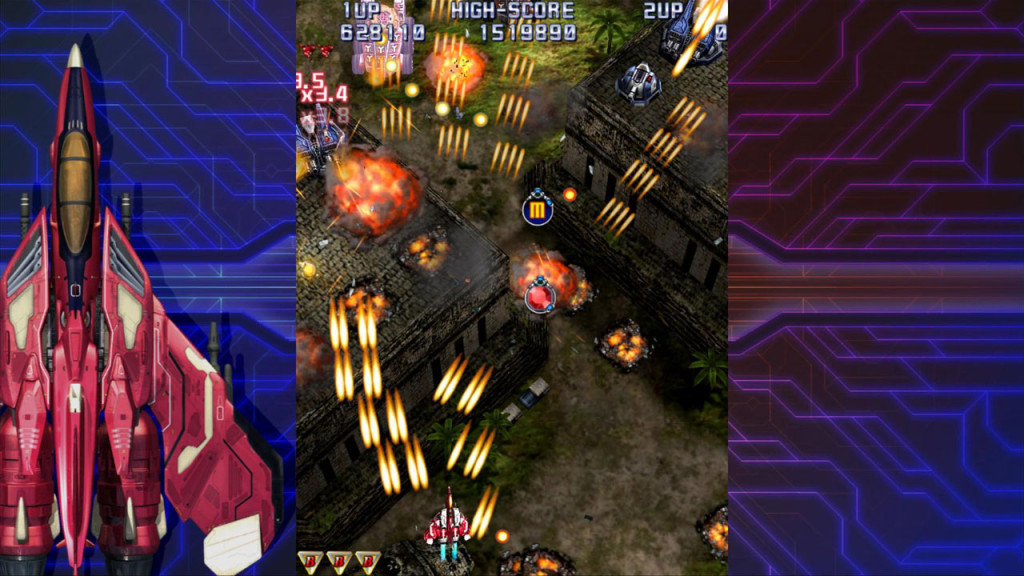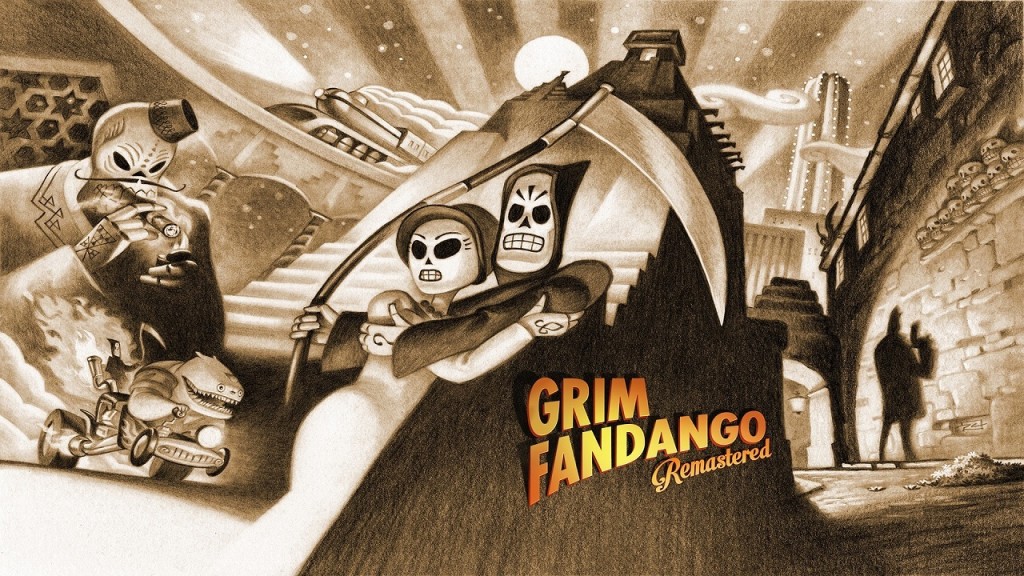Last updated on December 23, 2015
Playing a lot of shooting games, after having NOT played them for most of my gaming life, gives you a very different perspective on video games in general. I’m not sure why that is!
After coming back from a long, extended, much needed vacation, rolling into yet another vacation, I find myself with a bevy of free time. What have I done with it? Most people would dive straight for some long, extended RPG experience because, FINALLY, I will spend the time to beat Game X which takes 30+ hours. I suppose I would do that too, except I feel almost no motivation to start something that long. I finally conquered Mushihimesama, probably one of the most challenging games I’ve ever played, and I rolled right into Maniac mode instead of moving onto the next thing. In addition, I started playing the Raiden series, which takes an entirely different angle to shmups, with fast aimed bullets and tons of scary ways to die immediately.

To describe what happened, succinctly, requires that I outline a few things. This new genre, a real dedication to it, revealed a few things that I’m not sure I quite knew in advance, but understood very, very clearly upon playing shmups. Restrictions, in fact, make games much better. Before I proceed, be warned that I’m speaking from experience; if you have a similar example in your wheelhouse, just insert that example instead since I’m going to mention more than a few niche games you might never have played.
1. The wider the game’s audience range, the less interesting it will be mechanically by default. Shmups are, literally, the opposite of this. As they became less popular, the games brought their focus towards an increasingly small subset of fans who like arcade and action games in this vein. CAVE, obviously, popularized danmaku, and as their games turned more dense and insular, the singular games in themselves actually became more diverse and, frankly, weird as heck.
I like weird stuff; when you play video games enough, novelty and challenge often end up as the baseline for a time investment, and usually weird, mechanically complex games emerge from small markets. The wider a game’s market, it’s usually less focused, more broad, and contains a lack of mechanical consistency to the end (I like to compare Japanese and Western games in this regard, but that’s a personal bias).
Yes, even in a situation as tough as that.
2. The more niche a game’s range, the more likely it will exemplify the best elements of a genre. Think of it this way: a developer in a small subgenre of action games can’t really skimp on quality. That goes doubly for the arcades, where a few bright flashes of light, good graphics, and great music are all the advertising a game usually obtains. People make decisions to put a credit into the machine in less than a split second, so you better be sure you polished this game to the max. Developers reputation also holds a lot of sway, especially if your name is associated with that genre in particular, and just seeing a logo could be the difference between money and no money.
3. On the other hand, the more precise a game mechanically and the more niche its genre, the more likely it will be inaccessible. And therein lies the flipside of the coin: to make an interesting game requires you to shut the door on some audiences by default. From a business perspective, this makes no sense – you want as many people as possible to play the game, even if they lie outside your target market. From a game enthusiast perspective, however, you sorta want games like this to exist. New market conditions (like Steam) allow even dead genres (adventure games, shmups) to rise from the dead, even if the games hold little appeal for the vast majority of people.

4. Of course, the more loose and easy a game becomes, the more accessible it becomes by default. But that accessibility comes at the cost of depth. Just imagine any AAA video game that came out this year. Assassin’s Creed: Syndicate attempts to be all things to all people. Ubisoft knows that jamming tons and tons of side content, all of it very easy, provides “value” and “fun” to the general consumer. Playing five of these games in a row showed me just how similar they all are, year to year, and I haven’t played one since I finished Assassin’s Creed III. Ubisoft’s flagship series is the equivalent of video game Fluff – it tastes good, but there’s literally nothing in there to back it up in terms of mechanical longevity. That series, to me, is the very definition of “play and forget immediately”.
5. Great mechanics in a game best exemplify the actual intention of the directors and creators of the game itself. In a way, they say more about why the game is designed as it is, whether the mechanics line up with the rest of the design, and how the developers want you to play/feel/experience their work. I suppose a game with as simple mechanics as “move” and “shoot” would allow most gamers to see the differences in vivid relief!
 Just for example, anyone who plays shooters might know the name “Yagawa”, since his games tend to emphasize rank increases, medal chains, and “suiciding” (I know this is not a word) – all of which defined Battle Garegga and his subsequent spiritual “sequel” Ibara. You may or may not like that sort of system (I’m ambivalent on scoring in that particular fashion, because it goes against every gamer instinct in my body), but it’s certainly a mechanically sound system, and you really get the sense that Yagawa likes this sort of thing enough to get people to experience it. There’s a good reason both the aforementioned games are rare in both console ports and arcade boards, yet also a reason why diehard fans love these weird and quirky systems.
Just for example, anyone who plays shooters might know the name “Yagawa”, since his games tend to emphasize rank increases, medal chains, and “suiciding” (I know this is not a word) – all of which defined Battle Garegga and his subsequent spiritual “sequel” Ibara. You may or may not like that sort of system (I’m ambivalent on scoring in that particular fashion, because it goes against every gamer instinct in my body), but it’s certainly a mechanically sound system, and you really get the sense that Yagawa likes this sort of thing enough to get people to experience it. There’s a good reason both the aforementioned games are rare in both console ports and arcade boards, yet also a reason why diehard fans love these weird and quirky systems.
